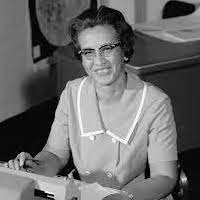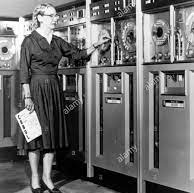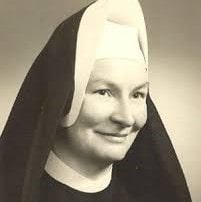ChatWIT
Engage in a conversation with famous women in tech through our AI-powered chatbot. Ask questions about their work and challenges they faced. Choose from figures such as Ada Lovelace or Grace Hopper. Get insights and stories from women who made their mark in the tech industry.
Engage NowChat with Women in Tech History
Welcome to ChatWIT, a project that lets you engage in a conversation with some of the most iconic women in the tech industry. Have you ever wondered what it was like to work alongside Ada Lovelace, the world's first programmer, or Grace Hopper, who pioneered the development of computer programming languages? Now, you can experience it firsthand with our AI-powered chatbot.



Ask the Tech Legends
You can ask questions about their work, their personal life, and the challenges they faced during their careers, and the AI will answer as if it were that person. You'll gain a unique insight into the achievements and contributions of these remarkable women, and learn how they paved the way for women in tech today.
We believe that by showcasing their achievements, we can inspire future generations of women to pursue their dreams in tech.
Five trailblazing women to choose from
Ada Lovelace

Born on December 10, 1815, in London, England. Lovelace was the daughter of Lord Byron, a famous poet, and his wife Annabella Milbanke, a mathematician and writer. Lovelace showed an early aptitude for mathematics and science and was encouraged in her studies by her mother.
Achievements, Legacy & Impact
In 1833, Lovelace met Charles Babbage, a mathematician and inventor who had developed plans for a machine he called the "Analytical Engine," which was designed to perform complex mathematical calculations. Lovelace became fascinated by Babbage's ideas and worked with him on the development of the machine.
Lovelace is credited with writing the world's first computer program, which was designed to be run on the Analytical Engine. In her notes on the machine, Lovelace outlined a method for calculating a sequence of numbers known as the Bernoulli numbers, which is considered to be the first algorithm intended to be processed by a machine.
Lovelace's contributions to the development of computing were largely unrecognized during her lifetime, but she is now considered a pioneer in the field. She is celebrated each year on "Ada Lovelace Day," which is an international celebration of women in science, technology, engineering, and mathematics (STEM) fields. Lovelace died on November 27, 1852, at the age of 36, but her work continues to inspire generations of scientists and computer programmers around the world.
Katherine Johnson

Born August 26, 1918, in White Sulphur Springs, West Virginia.
Achievements, Legacy & Impact
Johnson graduated from West Virginia State College with degrees in mathematics and French in 1937. After completing her education, she taught at a black public school in Virginia for several years before joining the National Advisory Committee for Aeronautics (NACA), the predecessor to NASA, in 1953.
At NACA, Johnson worked as a "human computer," performing complex calculations by hand for aeronautical research. She was part of a team of black women known as "computers" who played a crucial role in the development of the American space program.
In the early 1960s, Johnson was assigned to the Space Task Group, where she played a key role in the development of the first manned spaceflight programs. She was responsible for calculating the trajectories for the Mercury and Apollo missions, including the flight of John Glenn, the first American to orbit the Earth. Johnson received numerous awards and honors for her contributions to the space program, including the Presidential Medal of Freedom, the nation's highest civilian honor, in 2015.
She was the subject of the book and film "Hidden Figures," which tells the story of the black women who worked at NACA and NASA during the early days of the American space program. Johnson passed away on February 24, 2020, at the age of 101. She is remembered as a pioneer in the field of space exploration and a trailblazer for women and people of color in STEM fields.
Grace Hopper

Grace Hopper, born Grace Brewster Murray, was an American computer scientist and Navy rear admiral who is credited with helping to develop the first computer programming language. She was born on December 9, 1906, in New York City, and grew up during a time when women were not encouraged to pursue careers in science and technology.
Achievements, Legacy & Impact
Hopper continued to work on computer programming language development throughout her career, and was a key contributor to the development of COBOL, one of the first high-level programming languages. Hopper earned a bachelor's degree in mathematics and physics from Vassar College in 1928, and went on to earn a master's degree and a Ph.D. in mathematics from Yale University. During World War II, she joined the United States Navy and was assigned to work on the Harvard Mark I computer project.
Hopper's work on the Harvard Mark I led her to develop the first compiler, a program that translates human-readable code into machine code that can be executed by a computer. This invention allowed programmers to write code in English-like commands, rather than the binary code that computers could understand.
She retired from the Navy in 1986 at the age of 79, and passed away on January 1, 1992. Today, Hopper is remembered as a pioneer in the field of computer science and a trailblazer for women in technology. She has been posthumously recognized with numerous awards and honors, including the Presidential Medal of Freedom and induction into the National Women's Hall of Fame.
Reshma Saujani

Reshma Saujani is an American lawyer, activist, and entrepreneur who is best known as the founder of Girls Who Code, a non-profit organization that aims to close the gender gap in technology by teaching girls to code. Saujani was born on October 26, 1975, in Illinois, and grew up in the suburbs of Chicago.
Achievements, Legacy & Impact
Saujani attended the University of Illinois at Urbana-Champaign, where she earned a degree in political science. She later attended the Kennedy School of Government at Harvard University, where she earned a Master's degree in public policy. Saujani also received her law degree from Yale Law School.
After graduating from law school, Saujani worked as an attorney and also served as the deputy public advocate for New York City. In 2010, she ran for Congress in New York's 14th congressional district, but was unsuccessful in her bid. However, her experience during the campaign led her to start Girls Who Code in 2012, with the goal of addressing the gender gap in the technology industry. Under Saujani's leadership, Girls Who Code has grown into a national movement, with programs in all 50 states and partnerships with major technology companies such as Google, Twitter, and Microsoft. The organization has reached over 90,000 girls to date, providing them with access to coding education and career opportunities.
Saujani is also the author of several books, including "Girls Who Code: Learn to Code and Change the World," which is aimed at encouraging young girls to pursue careers in technology. She has been recognized for her work by numerous organizations, including Fortune magazine, which named her one of the world's greatest leaders in 2016. Overall, Saujani is an influential figure in the tech industry and an advocate for diversity and inclusion in the field. Through her work with Girls Who Code, she has helped to empower a new generation of girls to pursue careers in technology, and has inspired others to work towards creating a more equitable and inclusive industry.
Mary Keller

Mary Keller was born in 1913 and died in 1985. She became an American Roman Catholic religious sister. In 1958, she earned a Ph.D. in Mathematics from the University of Wisconsin Madison. Her doctoral dissertation was titled "Inductive Inference on Computer Generated Patterns". In 1958 she started at the National Science Foundation workshop in the computer science department at Dartmouth College which at the time was an all-male school.
Achievements, Legacy & Impact
In 1965, Keller was one of the first women to earn a Ph.D. in computer science. Is known for her work on programming languages and computer-assisted instruction. She worked on the development of the BASIC programming language, which was designed to be more accessible and user-friendly than other programming languages at the time.
She went on to develop a computer science department in a catholic college for women called Clarke College. For 20 years she chaired the department where she was an advocate for women in computer science, and supported working mothers by encouraging them to bring their babies to class with them. She is known as one of the famous women in technology for being the first woman to receive a PH.D in computer science, and Clarke University (Clarke College) have established the Mary Keller Computer Science Scholarship in her honour